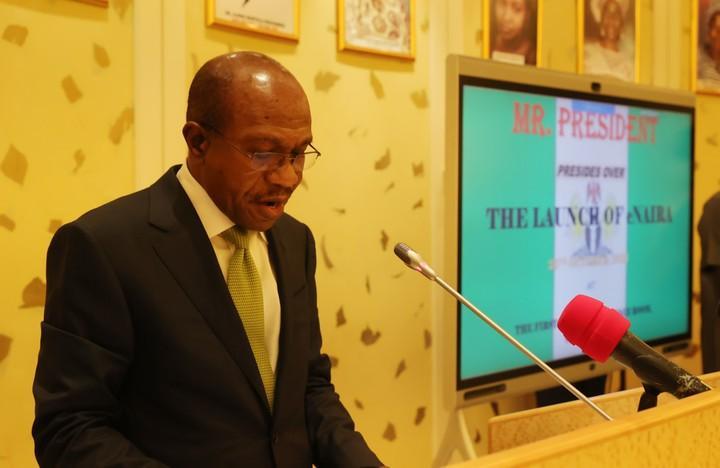- Equities Close Lower Despite Halting Seven-day Losing Streak
The Nigerian equities market recorded its second consecutive week of decline as the Nigerian Stock Exchange (NSE) All-Share Index fell 1.13 per cent to close at 42,638.83. Similarly, market capitalisation ended lower at N15.302 trillion.
Despite rebounding from a seven-day losing streak on Wednesday, the market closed the week on a negative note as losses recorded in the first two days outweighed the gains of three days.
As a result, the NSE ASI fell by 1.13 per cent to further reduce the year-to-date growth of the market to 11.5 per cent. Apart from the ASI that decline , all other indices finished lower with the exception of the NSE Pension Index that appreciated by 0.08 per cent while the NSE ASeM Index closed flat.
Analysts at Cordros Capital Limited said: “Given two consecutive weeks of profit taking, we expect investors to hunt bargains while also taking position ahead of Q4-17 corporate earnings releases.”
Daily Performance
Still in the bearish mood, the market opened on with a decline of 0.9 per cent on the first day of the week to close at 42,737.89. Similarly, the market capitalisation fell by same margin to close at N15.34 trillion.
The depreciation recorded in the share prices of GTBank, FBN Holdings, Zenith Bank, Dangote Sugar, and Transcorp were mainly responsible for the decline recorded.
According analysts at FSDH Research, the on-going sell sentiment may continue till midweek albeit on a milder scale than in the previous trading sessions
“Profit taking and bargain hunting may likely characterise subsequent trading sessions,” they added.
In all, 36 stocks depreciated, while only 13 appreciated. Eternal Plc led the price losers with 9.6 per cent, trailed by Equity Assurance Plc with 8.3 per cent. AIICO Insurance Plc shed 8.2 per cent, while Consolidated Hallmark Insurance Plc lost 5.7 per cent.
FBN Holdings Plc, GTBank Plc and Multiverse depreciated by 5.0 per cent apiece. May & Baker Nigeria Plc and Fidelity Bank Plc shed 4.9 per cent each.
On the positive side, PZ Cussons Nigeria Plc led the price gainers with 5.8 per cent, trailed by Beta Glass Plc, Glaxosmithkline Consumer Nigeria Plc and Unity Bank Plc with 4.9 per cent apiece.
UAC of Nigeria Plc chalked up 4.1 per cent, just as Jaiz Bank Plc, Linkage Assurance Plc garnered 3.8 per cent and 3.5 per cent respectively. C & I Leasing Plc, ABC Transport Plc and Wema Bank Plc advanced by 2.7 per cent, 2.5 per cent and 2.3 per cent in that order.
All the sectoral indices trended southwards. They were led by the NSE Banking Index , shedding 3.8 per cent following losses in bellwether banking stocks – GTBank (-5.0 per cent) and Zenith Bank (-4.9 per cent). The NSE Insurance Index followed with 1.1 per cent slide while the NSE Consumer Goods Index closed 0.9 per cent lower due to downtick in Nigerian Breweries Plc (-2.9 per cent) and Dangote Sugar Refinery Plc (-4.8 per cent). The NSE Industrial Goods Index and NSE Oil & Gas Index shed 0.4 per cent and 0.2 per cent respectively.
The market recorded its highest decline on Tuesday with capitalisation falling to a new low of N14.97 trillion, while the index closed below the 42,000 threshold at 41,708.15.
Specifically, the index fell 2.41 per cent, the highest decline since the beginning of the year. Similarly, the market capitalisation shed N369.5 billion, propelled by a decline in the shares of bellwether such as Dangote Cement, UBA, Nestle Nigeria Plc, FBN Holdings, and Nigerian Breweries Plc.
The bears were virtually on rampage as 40 stocks depreciated compared with 15 stocks that appreciated. Prestige Assurance Plc led the price losers with 7.1 per cent, followed by Skye Bank Plc with a decline of 6.5 per cent. Consolidated Hallmark Insurance Plc, FCMB Group Plc and United Bank for Africa Plc went down by 6.1 per cent, 5.9 per cent and 5.5 per cent in that order.
Japaul Oil and Maritime Services Plc, Royal Exchange Plc and Union Bank of Nigeria Plc shed 5.0 per cent each. Forte Oil Plc declined by 4.9 per cent, just as Fidson Healthcare Plc, Dangote Cement Plc and Sterling Bank Plc lost 4.8 per cent apiece.
The stocks that escaped the bear run were led by A.G Leventis Nigeria Plc with 7.0 per cent, trailed by Berger Nigeria Plc with 5.0 per cent, just as Etarna Plc appreciated by 4.9 per cent.
Other top price gainers included: NAHCO Plc (4.8 per cent); Linkage Assurance Plc (4.5 per cent); Access Bank Plc (3.9 per cent); African Prudential Plc (3.8 per cent); May & Baker Nigeria Plc(3.3 per cent).
However, the equities market rebounded on Wednesday after a seven-day losing streak. Bargain hunting in banking and consumer goods sectors lifted the index by 1.1 per cent to close at 42,171.80 while market capitalisation added N166.4 billion to close at N15.1 trillion.
The rebound could largely be attributed to buying interest in Banking and Consumer counters with Zenith Bank (+5.0 per cent), United Bank for Africa (+6.3 per cent ) and Nestle (+1.9 per cent) weighing the most on performance.
But Skye Bank Plc led the gainers chart with 10 per cent trailed by FCMB Group Plc that garnered 9.8 per cent. Conversely, First Aluminum led the price losers with 9.1 per cent, trailed by LASACO Assurance Plc with a decline of 5.8 per cent.
Volume and value of trading also rose by 10.7 per cent and 28.1 per cent to 520.7 million shares and N4.7 billion respectively.
Commenting on the performance, analysts at Cordros Capital Limited said: “We expect appetite to remain strong, as investors continue to hunt bargains and take position ahead of Q4-17 earnings, amidst generally improving macroeconomic conditions.”
Also commenting, analysts at Meristem Securities Limited said: “The bullish charge in the market was led by gains recorded on counters in the banking and consumer goods sectors, which offset the loss on the market’s heavyweight, Dangote Cement Plc. We expect a continuation of the bargain hunting activities in the market and an improvement in the market mood to sustain the recovery in the near term.”
The market sustained the positive performance on Thursday with the index rising by 1.0 per cent to 42,604.40 , while market capitalisation added N155.2 billion to close at N15.3 trillion. The performance was majorly driven by price appreciation in FBN Holdings Plc (+8.2 per cent), GTBank (+2.0 per cent) and Dangote Cement Plc (+0.6 per cent).
Sectorally, it was largely bullish as four of five indices closed in the green while one closed flat. The NSE Banking Index led gainers, rising 1.3 per cent. The NSE Industrial and NSE Consumer Goods indices trailed, rising 0.9 per cent and 0.8 per cent respectively. The NSE Oil & Gas Index appreciated marginally by 0.01 per cent, while the NSE Insurance Index however closed the day flat.
Market Turnover
Meanwhile, a total turnover of 2.940 billion shares worth N27.924 billion was recorded in 28,570 deals during the review week, compared with a total of 4.426 billion shares valued at N24.236 billion that exchanged hands in 29,573 deals the previous week.
The Financial Services Industry led the activity chart with 2.174 billion shares valued at N17.033 billion traded in 19,013 deals, thus contributing 73.96 per cent and 61 per cent to the total equity turnover volume and value respectively. The Services Industry followed with 232.482 million shares worth N216.990 million in 734 deals.
The third place was occupied by Conglomerates Industry with a turnover of 170.422 million shares worth N499.400 million in 1,578 deals. Trading in the top three equities namely – Linkage Assurance Plc, Skye Bank Plc and FCMB Group Plc accounted for 809.798 million shares worth N1.130 billion in 2,551 deals, contributing 27.5 per cent and 4.04 per cent to the total equity turnover volume and value respectively.
Price Gainers and Losers
A look at the price movement chat showed that 48) equities depreciated in price, lower than 64 equities of the previous week, while 30 equities appreciated in price during the week, higher than 23 equities recorded in the preceding week.
Consolidated Hallmark Insurance Plc led the price losers with 22.8 per cent, trailed by First Aluminium Nigeria Plc with 19.5 per cent.
Courtville Business Solutions Plc shed 17.3 per cent, just as Japaul Oil & Maritime Services Plc and Prestige Assurance Plc went down by 14.2 apiece.
Other top price losers included: Unity Kapital Assurance Plc (13.6 per cent); Multiverse Mining and Exploration Plc (12.5 per cent); Equity Assurance Plc (12.5 per cent); Caverton Offshore Support Group Plc (11.6 per cent);and Sterling Bank Plc (11.4 per cent).
Berger Paints Nigeria Plc led the price gainers with 11.4 per cent, followed by Beta Glass Plc with 10.2 per cent. Access Bank Plc appreciated by 5.4 per cent, just as A.G Leventis Nigeria Plc and GSK Nigeria Plc chalked up 5.2 per cent and 4.9 per cent in that order.
Top price gainers include: Transcorp Hotels Plc (4.8 per cent); WAPIC Insurance Plc (4.6 per cent); African Prudential Plc, PZ Cussons Nigeria Plc (4.1 per cent); and Zenith Bank Plc (3.5 per cent).

 Naira4 weeks ago
Naira4 weeks ago
 Naira3 weeks ago
Naira3 weeks ago


 Naira4 weeks ago
Naira4 weeks ago




 Naira3 weeks ago
Naira3 weeks ago
 Commodities4 weeks ago
Commodities4 weeks ago


 Sport Business4 weeks ago
Sport Business4 weeks ago


 News3 weeks ago
News3 weeks ago


 Banking Sector4 weeks ago
Banking Sector4 weeks ago
























